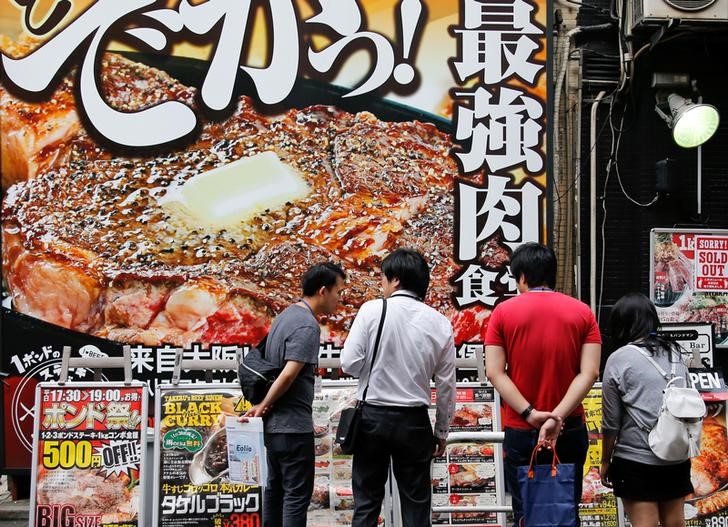Investing.com-- Japanese consumer inflation grew slightly more than expected in September as food prices remained elevated, while a core inflation reading that is closely watched by the Bank of Japan remained near 40-year peaks.
National core consumer price index inflation, which excludes volatile fresh food prices, grew 2.8% year-on-year in September, data from the Statistics Bureau showed on Friday. The reading was slightly above analyst expectations of 2.7%, but lower than the prior month’s reading of 3.1%.
The reading marked the first time in 13 months that core CPI inflation had broken below 3%, although a bulk of the decline could be attributed to government subsidies on electricity and gas prices, which were rolled out earlier this year.
But a core reading that excludes both fresh food and fuel prices read 4.2%, down slightly from the prior month, but still close to a 40-year peak of 4.3% hit earlier this year. The reading is closely watched by the Bank of Japan in gauging inflationary conditions in the country, and shows that underlying inflation remains elevated.
Headline national CPI inflation, which includes both fresh food and fuel prices, read 3% in September, compared to the prior month’s reading of 3.2%. CPI inflation also grew 0.3% month-on-month, accelerating slightly.
While on the surface, Japanese inflation appears to be moving closer to the BOJ’s 2% annual target, underlying inflation has remained sticky amid robust retail spending and rising overall food costs. The country’s heavy dependence on food and energy imports has been a key driver of this trend over the past year, amid surging commodity prices and rising global food costs.
Weakness in the yen- which was trading close to the 150 level on Friday- has also been a key factor in higher import costs. The Japanese currency was battered by a growing rift between local and U.S. interest rates over the past year.
Sticky inflation potentially gives the BOJ more impetus to roll back its ultra-loose policy. While the bank made some concessions in its strict yield curve control mechanism this year, interest rates have remained negative and stimulus measures have continued as usual.
Makoto Sakurai, a former BOJ board member, said this week that the central bank could potentially scrap negative interest rates by the end of the year, given that Japanese bond yields have risen significantly and that the economy is flush with stimulus.
The BOJ is set to meet on October 30 and 31.
